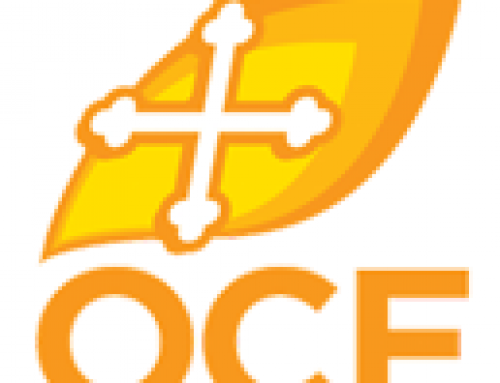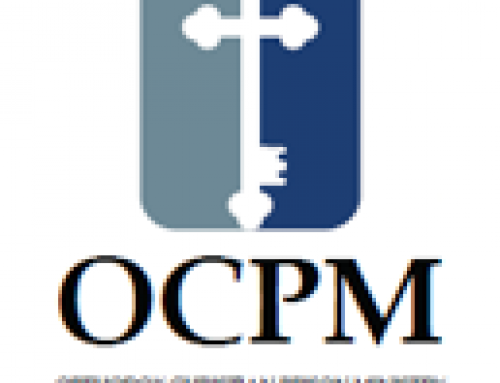This post was originally published on this site
In a previous blog post, we answered the question “Who are the poor?” (Spoiler: it’s not always who you think it is). Why is this important? So we can open our lives to new opportunities to see and serve Christ in each other.
There are countless ways to define and measure poverty. The idea that poverty is purely based upon financial status (or lack thereof) is shortsighted and limits our opportunities to serve “the poor.”
Compassion International, a world-wide child advocacy ministry, defines poverty in this way:
“Poverty is hunger. Poverty is lack of shelter. Poverty is being sick and not being able to see a doctor. Poverty is not having access to school and not knowing how to read. Poverty is not having a job, is fear for the future, living one day at a time. Poverty is losing a child to illness brought about by unclean water. Poverty is powerlessness, lack of representation and freedom.”
What do you think of their definition?
We think it does a great job showing how poverty includes economic, environment, education, health, social and even spiritual components.
These six aspects together create a poverty wheel, a visual tool that we can use to help us re-imagine poverty.
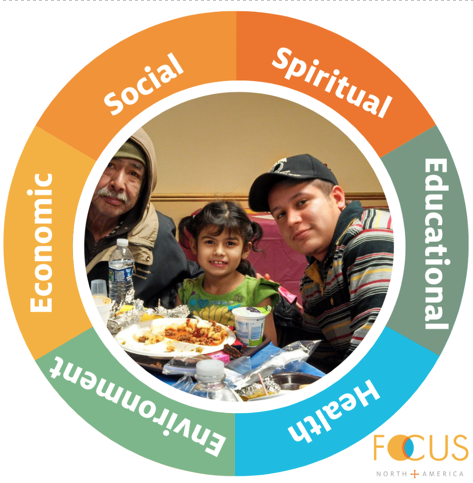
For each person you put in the middle of the wheel, each spoke of the wheel is different.
What would Oprah’s wheel look like?
It’s safe to say, her economic spoke would be off the charts…but what about her social slice? We can speculate that maintaining fulfilling relationships with friends and family could be difficult.
What would a homeless neighbor’s wheel look like?
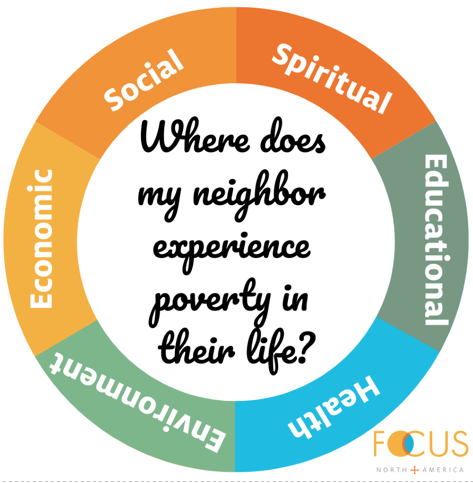
Their economic spike might be small. But what about the other spokes? We can’t assume that because someone is experiencing homelessness that they are uneducated, for example.
The fact is, many of our neighbors and colleagues are one hardship or crisis away from homelessness themselves. A truth many of us saw and possibly experienced during the recent government shutdown.
What does your wheel look like?
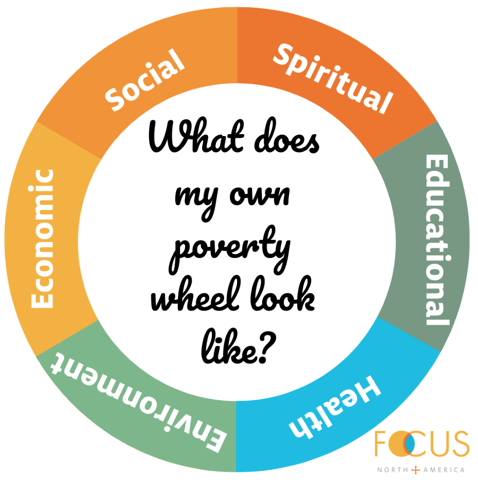
Many of us have much more than we need financially. Bills are paid (mostly) on time. We have access to health care. We live in a relatively clean, safe, supportive environment. Our comfortable lives make it easy for us to forget that we need to depend on God in good AND bad times. Our spiritual health suffers when we look to our possessions, worldly activities and environment for comfort and help.
Now, think back to our homeless neighbor. Sitting on the street watching strangers’ feet pass by. Ignored by so many, he or she turns to conversation with God to get through the day and find the strength to wake up again the next morning.
How often do we talk to God each day?
The poverty wheel shows us that whether in times of need or times of excess, we should always be looking for areas to give and areas to grow.


